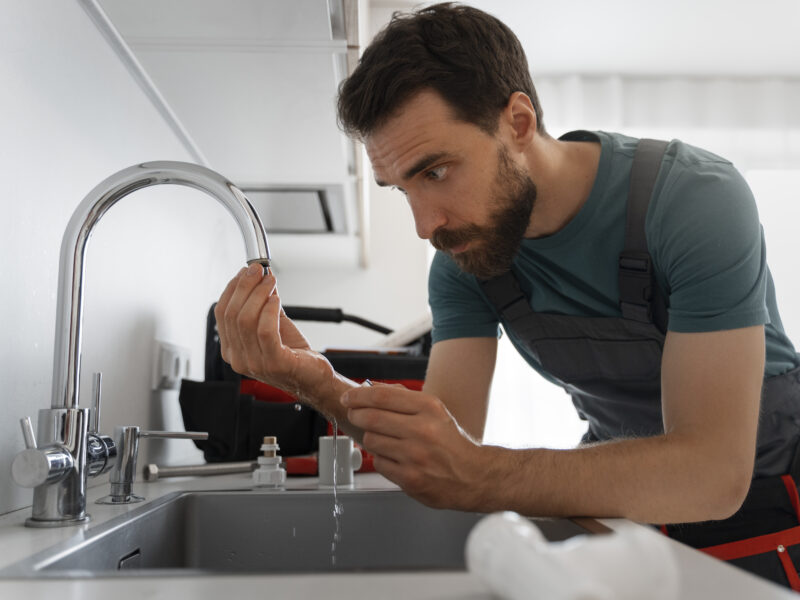Water is something we usually use without thinking twice, but it is actually one of our most valuable resources. Right? From the moment we wake up, water plays a crucial role in our daily lives, whether it's for drinking, cooking, cleaning, or even powering industries.
As the world becomes more eco-conscious, everyone is trying to do their part in saving water. There are various ways to conserve water, but one of the most effective and often overlooked methods is through your plumbing system. A well-designed, efficient plumbing system can make a huge difference in how much water you use daily. Plumbing isn't just about fixing pipes; it's about making your home or business more water-efficient and sustainable. Interesting?
Let's take a closer look at how plumbing systems contribute to water conservation and how small changes can lead to significant savings.
How Does Plumbing Impact Water Conservation?
Plumbing systems are responsible for delivering water to our homes and businesses and removing wastewater. But did you know that the way plumbing is designed and maintained has a crucial impact on how much water is used? Whether it's leaky pipes, inefficient fixtures, or outdated systems, poor plumbing can waste more water than you might think.
On the other hand, a well-designed and properly maintained plumbing system ensures that water is used efficiently and effectively. By making small improvements to your plumbing, you can reduce water waste, lower your utility bills, and contribute to a healthier environment.
Common Plumbing Features That Improve Water Efficiency
There are several plumbing features that can help make your water use more efficient, saving you both water and money. Let's have a look at a few.
Low-Flow Fixtures
Low-flow taps, showerheads, and toilets use much less water than traditional models. Install these fixtures to cut down on water use without compromising on performance. Yes, you can still enjoy a refreshing shower or wash dishes without wasting water.
Water-Efficient Appliances
Appliances like dishwashers, washing machines, and hot water systems with high-efficiency ratings consume less water and energy. So, when shopping for new appliances, check for a high Water Efficiency Labelling and Standards (WELS) rating to ensure they will help you save both water and energy.
Rainwater Harvesting Systems
Rainwater harvesting systems collect and store rainwater for non-drinking purposes, such as watering your garden or washing your car. Installing a rainwater tank reduces your reliance on mains water and helps you make the most of a natural, free resource.
Water-Saving Irrigation Systems
If you have a garden, use a water-saving irrigation system like drip irrigation. These systems send water straight to the plant roots, so no water is wasted on paths or areas that don’t need it. This helps save water and keeps your garden healthy.
Smart Water Meters
Use smart water meters to track your water use in real-time. These meters help you keep an eye on your water consumption and fix problems before they get worse.
Pressure Reducing Valves (PRVs)
High water pressure can lead to wastage, especially in older plumbing systems. Pressure-reducing valves (PRVs) can be installed to lower the water pressure in your pipes, reducing water waste and helping to protect your plumbing from damage.
Pipe Insulation for Hot Water Systems
Insulating your hot water pipes ensures that heat doesn't escape, so you don't have to run the tap as long to get hot water. This not only saves water but also improves energy efficiency. And it is always advised to consult experts for hot water service Melbourne.
Water Leak Detection Systems
Installing a water leak detection system is also one of the features to spot leaks early, before they become a bigger problem. By catching leaks quickly, you can stop water wastage and prevent damage to your property, saving both water and money.
By incorporating these water-saving features into your plumbing system, you can make a noticeable difference in your water consumption and contribute to a more sustainable, eco-friendly lifestyle.
Conclusion
Water conservation is very important, and your plumbing system plays a huge role in helping you achieve it. By upgrading your plumbing, fixing leaks, and adopting modern technologies, you can make a big difference in how much water you use each day.
At Essendon Plumbing Services, we will try to make your plumbing system as water-efficient as possible. Whether you need advice on installing a hot water system, a gas fitter Melbourne, or just need help fixing leaks and improving your system's performance, our team is ready to assist.
Let's work together to conserve water and create a more sustainable future. Contact us today to get started!


 Exploring the Hidden Risks of Ignoring Plumbing Leaks
Exploring the Hidden Risks of Ignoring Plumbing Leaks

